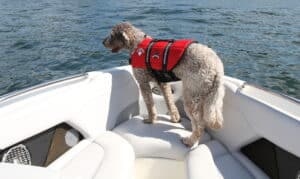Puppies are adorable and loved additions to any family, but these cute, furry companions also come with all sorts of natural habits that may be quite a nuisance for a typical household. Dogs are naturally primitive creatures. Thankfully, they adapt easily and can be trained with little effort, making it possible to share our homes with our favorite four-legged friends and still maintain our standards of order and cleanliness. Teaching your puppy to behave properly is a huge responsibility and may seem much more daunting than it should be.
With a little patience and a few simple, proven training methods, you can put an end to most of your puppy’s bad habits by redirecting his natural instincts to something more appropriate.
Nipping
Nipping is quite common and normal among puppies, especially when you and your puppy are playing and gets overly excited. This ordinary puppy instinct is seemingly harmless, but will soon become more dangerous and painful as your puppy grows. Teach your puppy early to never touch your skin, or anyone else’s, with his teeth, and he will be much less likely to bite later in life.
The best way to train your puppy to stop nipping is to direct his urges away from your hands with puppy toys. Your puppy needs a variety of toys that will be fun to play with and satisfy his desire to nip. Soft, plush toys are a good choice, especially those with bright colors, and rubber dog toys invite puppies to chew and bite.
Start training your puppy the very first time you play with him and every time thereafter. Puppies as young as eight weeks old can be trained with little effort. If your puppy starts to bite as you play, always respond with “ouch” and stop your playtime for about 10 seconds. If your puppy continues nipping when you resume your play, get up and leave the room for a moment.
Leaving your puppy alone each time he bites will help him realize that the action ends his playtime. Soon, he will stop the habit so he can continue to enjoy playing with you. You may want to start training your puppy each time he bites hard and slowly work toward ending the habit altogether.
Chewing
Much like infants, puppies teethe at some point in their development and during this time, they enjoy chewing because it soothes their sore, tender gums. Unfortunately for dog owners, this natural chewing usually destroys a number of possessions, including shoes, newspapers, and even furniture. You may not be able to stop your puppy’s need to chew and soothe his pain, but you can help him focus his chewing on more constructive materials.
To train your puppy to stop chewing on household items, provide him with a variety of chew toys. Be sure your puppy always has a chew toy available wherever you go. For best results, limit your puppy to a small section of the house and have plenty of toys nearby. Surrounding your puppy with as little furniture and other tempting items as possible will make your efforts much easier.
If your puppy chews on something he shouldn’t, firmly say “no” and place his chew toy in front of him. Always praise your puppy when he chooses his toy over your belongings.





